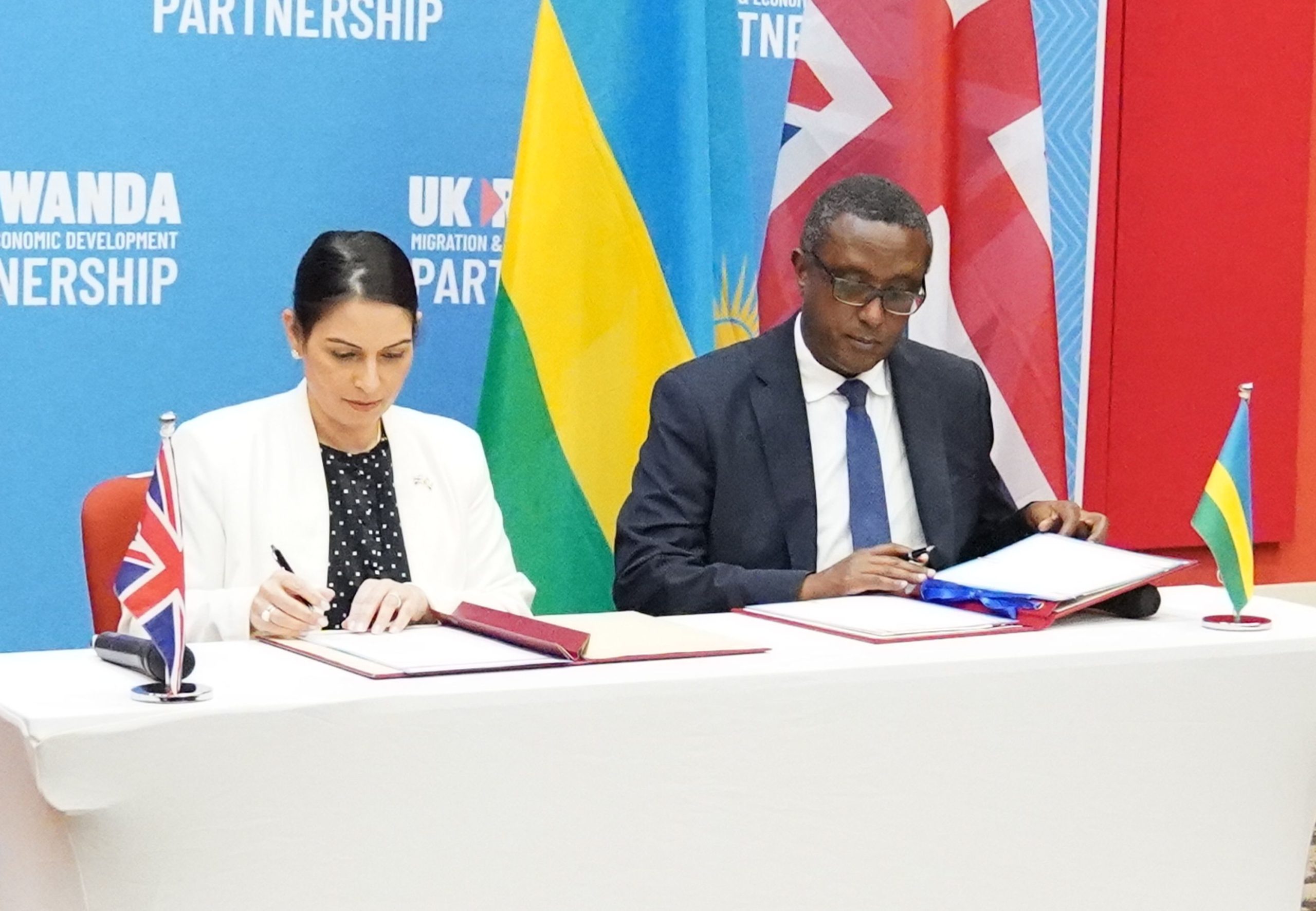Index has filed a Council of Europe alert raising concerns about the decision to exclude certain journalists from accompanying UK Home Secretary Priti Patel on an official visit to Rwanda where she announced a proposed new arrangement for sending British migrants to the central African country to have their asylum claims decided.
Journalists from The Guardian, Financial Times and The Mirror were among those excluded by the Home Office on the mid-April press trip, restricting their ability to scrutinise a significant development in British foreign policy.
Among those excluded was Rajeev Syal, the Guardian’s home affairs editor, who had previously reported extensively on bullying allegations against Patel. Other home affairs specialists did accompany Patel on the trip. The Guardian said: “We are concerned that Home Office officials are deliberately excluding specific journalists from key briefings and engagements.”
The Financial Times told Press Gazette: “On this occasion our journalists were excluded from the press trip and received minimal briefing. It is clearly not good practice to exclude some media from government meetings simply because they are willing to ask difficult questions.”
Index understands it is not the first time journalists have been blacklisted by the Home Office in this way. Only a select group of reporters was invited on a trip Priti Patel made in November 2021 to Washington DC to discuss terrorism and the global migration crisis with Alejandro Mayorkas, US secretary of homeland security.
The government’s controversial scheme will see migrants who arrive in small boats after crossing the English Channel flown 4,000 miles to Rwanda to have their claims processed; in her speech in Rwanda, Patel said 28,000 migrants crossed the Channel this way in 2021.
Migrants will be encouraged to relocate to the African country. Patel said, “Those who are resettled will be given support, including up to five years of training to help with integration, accommodation, and healthcare, so that they can resettle and thrive.”
Opponents of the scheme have questioned Rwanda’s record on human rights and free expression. Journalists working in Rwanda operate under a strict accreditation system and criticism of President Paul Kagame is off limits.
In March, Human Rights Watch said Rwanda did not match up to international standards of free speech and warned of a wave of arrests of Rwandan journalists and commentators: “Judicial authorities in Rwanda, lacking the independence to stand up and protect free speech in accordance with international law, have unjustly convicted and jailed people based on their protected speech and opinions,” said Lewis Mudge, Central Africa director at Human Rights Watch.
The first legal challenge to the Rwanda scheme was launched last week on behalf of an Iranian asylum seeker. Lawyers argue the proposals breach international law, the UN refugee convention and British data protection legislation.
In her speech in Rwanda, Patel said, “This agreement fully complies with all international and national law, and as part of this ground-breaking agreement, the UK is making a substantial investment in the economic development of Rwanda.”
The Home Office has denied targeting certain journalists and says it adheres the UK’s Government Communication Service Propriety Guidance in dealing with the media.
The Council of Europe was founded after World War II to protect human rights, democracy and the rule of rule across the continent. It is committed to upholding the European Convention on Human Rights.
The British government will be asked to provide a formal response to the alert, although it has a poor record in this regard, responding to just 10 per cent of the alerts filed in 2021.






